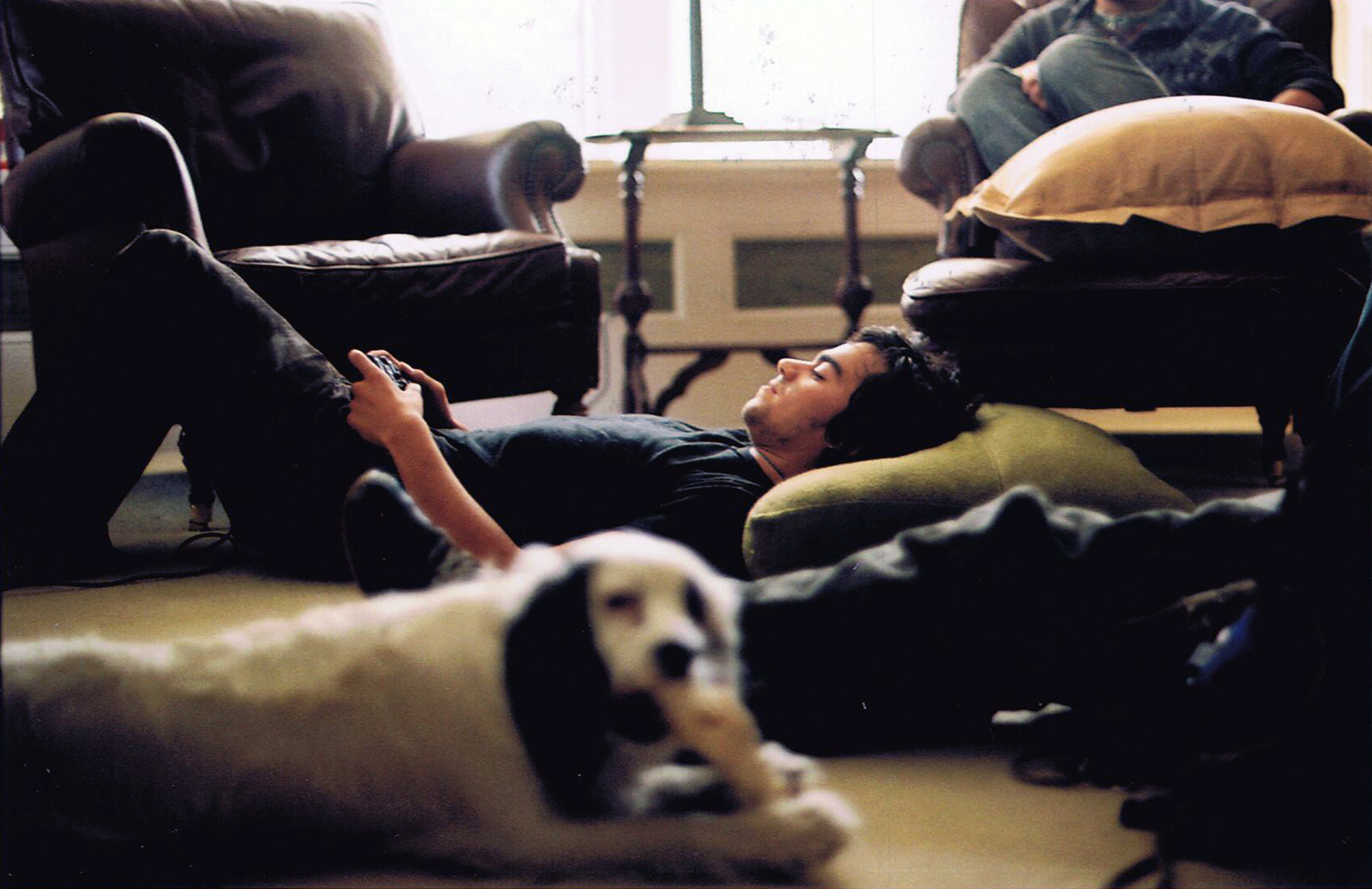Men — those of us who’ve been socialized into masculine behaviors — have it bad right now.
There, I said it.
We die by suicide much more frequently, even though women are diagnosed with depression two to four times as often. We also die from alcohol-related causes almost three times as often as women.
We are much less likely to graduate high school, enroll in college, and complete college after enrolling.
Sure, the average woman still earns 83 cents for every dollar paid to a man. But even that is shifting: In some cities, women are now out-earning their male counterparts.
But it’s deeper than facts and figures. Men are straight up lost — emotionally, socially, spiritually.
I recently heard the therapist Terry Real interviewed and the word he kept using over and over again about men was “disconnected.” Men are disconnected.
“The way you turn a boy into a man in this culture … is disconnect them from their hearts, from their feelings … disconnect them from others,” Real says. “The essence of traditional masculinity is invulnerability. The more invulnerable you are, the more manly you are. The more vulnerable you are, the more girly you are.”
One time at a street fair in supposedly progressive Washington, D.C., I overheard a boy asking a face painter to turn him into a blue and purple butterfly.
“No, you’re not going to be a butterfly,” his mother said.
“But why?” the boy asked, his smile fading into confusion.
“Because,” she said. “Why don’t you be a tiger or a pirate?”
It wasn’t exactly abuse, but it was an exaggerated example of how many boys are taught at a young age to disconnect and deny parts of themselves.
The mother probably thought her son should want to be fierce and aggressive rather than radiant, harmless, and vulnerable, like a butterfly. She was probably just trying to protect him.
Here’s the really sad part: “Humans connect through vulnerability,” Real says.
The set of behaviors now known as so-called “toxic masculinity” — aggression, stoicism, anti-femininity — stem from this disconnection. Liz Plank, author of For the Love of Men, says, “A lot of men are actually causing pain to women in their lives because they’re in deep pain.”
I can count on one hand the number of male buddies who are connected — who deeply know themselves and have vibrant social lives.
So many others seem trapped in isolating, disconnecting cycles of binge drinking, habitual masturbation to porn, video games, and/or tons of unwanted time alone.
None of these things are inherently bad. They’re reasonable ways of coping with the loneliness and disconnection created by our hyper-individualized, capitalist society. I like watching porn, vegging out on YouTube, and getting wasted from time to time.
It’s just that numbing out often leads to even more disconnection. It needs to be balanced with things that connect us with ourselves, others, the earth.
Admittedly, I only know this because of the women in my life. A girlfriend all but forced me to go to therapy. My women friends have modeled how to be a full human being who takes care of themselves and others. They go to therapy, ask for help from others, check in on friends, openly share how they feel — things that lead to more, not less, connection.
Women — especially those of color — are trailblazing the journey of building a more connected society. Activist and writer adrienne maree brown writes in a recent poem, “we building a future, where even the white men, can recover themselves.”
All men have to do is follow in their footsteps. They’re literally showing us how to do it.
Terrifyingly, the loudest men are leading us in the wrong direction, toward doubling down on the aggression, entitlement, and rigid thinking that keeps us disconnected.
“I see a backlash against masculinity,” Jordan Peterson, the Canadian psychologist, told the BBC in 2018. “A sense that there is something toxic [about it.]”
It’s not a backlash. Women, queer, and trans people are courageously doing the work to grow as human beings, openheartedly, often in public. They’re learning how to express femininity and masculinity — and transcending that outdated, limiting binary altogether.
It makes sense that us men are scared. We have to start by recognizing that the script for being a man handed to our fathers and grandfathers is no longer serving us (and it probably didn’t serve them all too well either). We have to take one small step today to connect. We have to join with other men to figure this shit out together.
And when the voice in our head says, “Ew, gross, that’s feminine,” we need to care, reassure, and be with that voice like the little boy that it is.
Hi, I’m Jeremy, a writer, therapist, and meditation teacher. Subscribe to my weekly email to get posts like this straight to your inbox here.
Download my free ebook on how meditation made me less anxious and transformed my life.
Photo by katie pease.
